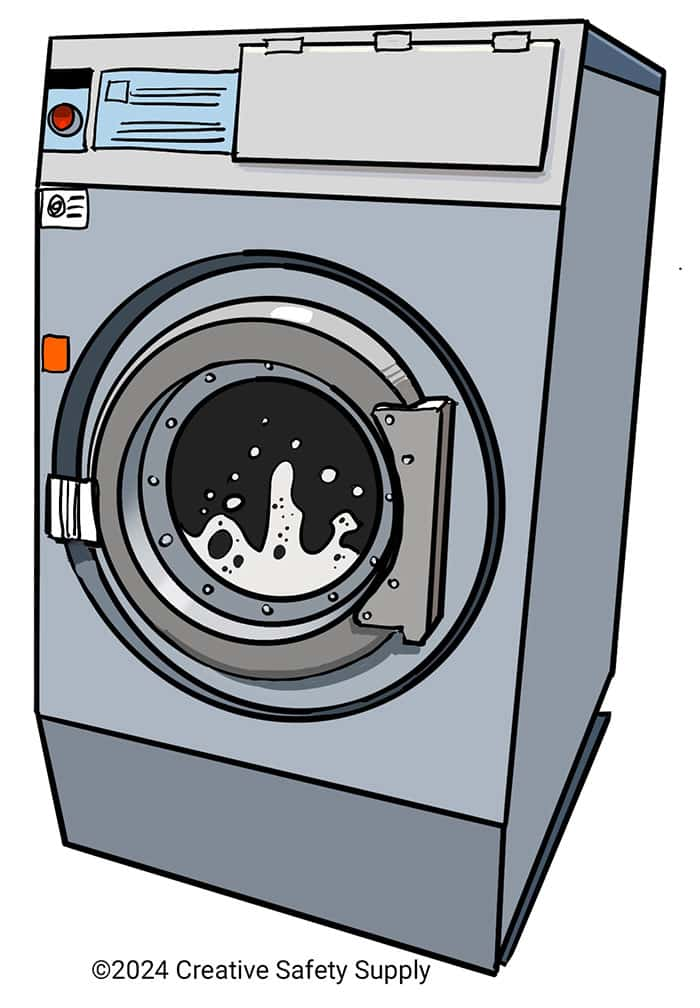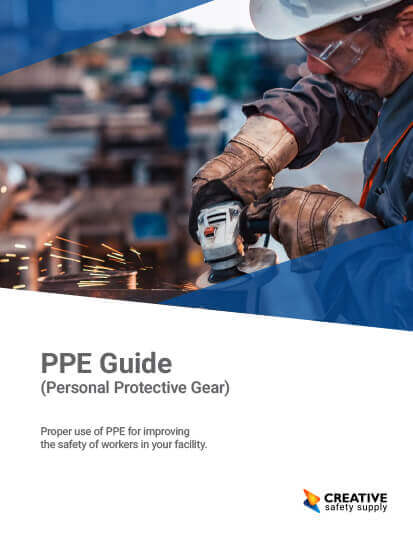
Through the course of day to day work, clothes get dirty. For most people, this just means they have to toss them in the washing machine and they are ready to go. When clothes are contaminated with potentially dangerous materials, such as lead, however, it requires specialized action. As an employer, it is important to ensure that the clothes that are contaminated with lead are properly washed to help ensure not only employees are safe, but the environment as well.

Contaminated Clothing Must Remain Onsite
The first thing to note is that lead-contaminated clothing must remain at the workplace. Employees should not be permitted to bring the clothes home to wash. This is because washing them at home could cause environmental damage because the of how residential wastewater drains. In addition, it could cause damage to the washer. This is all on top of the potential that pets, children, or others become exposed to the lead, which could cause a variety of problems.
Professional Cleaning Service
In order to have lead-contaminated clothes washed, it will be necessary to use a professional cleaning service that specializes in this type of work. The other option would be to install industrial washing equipment on site, and make sure that the wastewater is drained and filtered properly to avoid damaging the environment in the area. Most companies will have their contaminated clothing picked up by a third party that performs this type of work and have them make sure everything is properly cleaned.
How the Washing is Conducted
Regardless of where the contaminated clothes are washed, it should be done in such a way as to ensure everyone’s safety. This means washing the clothes after every shift, which will help to minimize exposure to employees. Contaminated clothes should always be washed together, and not with uncontaminated materials. For heavily soiled clothes, running them through a rinse cycle (or spraying them with a hose) first, will help allow the detergent to properly clean the materials. Finally, it is best to air dry these clothes so that they don’t ruin the dryer.
Additional Lead facts:
- Lead is a toxic metal that can cause serious health problems if it gets into the body through inhalation, ingestion, or skin contact. Exposure to lead can occur through contaminated clothing, among other ways. Source: https://knowingfabric.com/how-to-wash-lead-out-of-clothing/
- Lead-contaminated clothing should be washed separately from other laundry, using hot water and a heavy-duty cycle. A lead-removing detergent, such as Lead Out, can help to dissolve and remove the lead particles from the fabric. Source: http://esca-tech.com/wp-content/uploads/2019/08/Washing-leaded-clothes-at-home-final_R1.pdf
- Natural methods, such as soaking the clothes in vinegar or baking soda, can also help to loosen and remove the lead from the clothing. However, these methods may not be as effective as using a specialized detergent. Source: https://www.displaycloths.com/can-you-wash-lead-out-of-clothes/
- Dry cleaning is another option for cleaning lead-contaminated clothing, especially if the fabric is delicate or prone to shrinking. Dry cleaning can remove lead dust and dirt from the clothing, but it may not eliminate all traces of lead. Source: https://www.fabricfits.com/can-you-wash-lead-out-of-clothes/
- After washing or dry cleaning the lead-contaminated clothing, it is important to inspect the clothing for any remaining stains or discoloration. If the clothing still shows signs of lead contamination, it should be washed again or disposed of safely. Source: http://www.qetesting.com/how-to-clean-lead-dust-from-clothing
- To prevent lead contamination of clothing, it is advisable to wear protective clothing, gloves, and a respirator when working with lead or lead-based materials. It is also important to change clothes and wash hands before eating, drinking, or smoking. Source: https://knowingfabric.com/how-to-wash-lead-out-of-clothing/
Similar Questions
- What is the proper way to dispose of PPE?
- When should ear protection be worn?
- What hazards do PPE protect from?
- What are the “Dos” and “Don’ts” of PPE?
- How should PPE be stored?
- Can PPE be shared, reused, or altered?
- Who supplies PPE at work?
- What is NRR?
- What PPE is used for working over dangerous equipment and machinery?
